Determining the Optimal Business Model for Your Car Wash Success

by Tim Fitzpatrick, Mid-Atlantic Sales Manager / Howco Inc.
Launching a car wash business can be a smart investment, offering entrée into a recession-resistant industry with the opportunity to establish and grow a solid brand.
At startup, one of your earliest decisions will be the right choice of wash model to match your budget, location, and market demand. Based on these factors, Howco advises entrepreneurs to help them Plan, Develop, and Operate® their optimal car wash model.
Let’s look at three major car wash models and consider their benefits, challenges, and estimated investment levels.
Self-Service Car Wash
Customers wash their own vehicles using equipment (high-pressure wands, foam brushes, etc.) provided by you.
Owning a self-service car wash offers entrepreneurs a low-maintenance, scalable business model with a steady revenue stream and lower startup costs than other car wash types. The simple, customer-operated nature of the business makes it an appealing option for hands-off or semi-absentee ownership.
Benefits
- <strong>Lower startup costs</strong> (estimated<strong> </strong>$150,000 – $500,000): Without the need for more high-tech automated wash equipment, the main investments are the wash bays, high-pressure wands, foam brushes, and meter boxes to accept cash, credit cards, and coins.
- <strong>Minimal labor costs</strong>: Since customers perform the car washing themselves, payroll expenses and the complexities of managing a large staff are eliminated.
- <strong>Caters to a specific market</strong>: Self-serve washes appeal to car enthusiasts and budget-conscious customers who prefer a hands-on cleaning experience. They also offer a solution for those whose vehicles or equipment won’t fit into and/or can’t be driven or conveyed through other types of car washes.
- <strong>High profit margins</strong>: Due to low start-up, maintenance, and labor costs, self-service car washes can generate attractive profit margins, especially once the initial investment is recouped.
- <strong>Multiple revenue streams</strong>: Boost your income by adding vacuum stations, vending machines for car care products, or specialized detailing bays.
- <strong>Flexibility and absentee ownership</strong>: With lower maintenance and labor needs, you have more flexibility to manage the business remotely, particularly if you hire minimal but effective local management to ensure the wash is properly maintained.
- <strong>24/7 access</strong>: Self-serve car washes can operate around the clock, providing customers with maximum convenience and generating income at all hours.
Challenges to Consider
- <strong>Vandalism and theft</strong>: Unattended facilities can be vulnerable to vandalism and theft from coin boxes. Security cameras and cashless payment options can help mitigate this risk.
- <strong>Higher water usage</strong>: Without a water reclamation system, a multi-bay self-serve operation can use a significant amount of water compared to modern automated systems.
- <strong>Location dependence</strong>:<strong> </strong>Since the customers do the work, self-service washes are less of a destination than a full-service location and more dependent on easy access and high visibility. They are best located near high-traffic residential or commercial areas with proximity to complementary businesses such as gas stations or shopping centers.
- <strong>Weather volatility</strong>: The do-it-yourself aspect will be less appealing for customers during rain, snow, ice, and/or extreme cold, so regions that see more of these conditions may be less suited for self-service operations.
In-Bay Automatic Car Wash
Customers choose their car wash, drive into and park in the bay, and stay in the car while machinery performs the wash.
The In-Bay Automatic model offers mid-tier entry costs, minimal land requirements, low labor demands, and consistent revenue.
In-Bay Automatic car washes may be touchless, friction-based, or a hybrid. Touchless washes use high-pressure water nozzles and chemicals to clean the vehicle without physical contact, while friction-based washes use soft cloth or foam brushes and rollers that move over the car’s surface. Hybrid or flex-serve washes combine these methods, sometimes allowing the customer to choose between them.
Benefits
- <strong>Lower start-up cost</strong> (estimated<strong> </strong>$250,000 – $700,000+)<strong>:</strong> In-Bay Automatic systems are generally less expensive to install and operate than tunnel systems.
- <strong>Smaller space requirement: </strong>Their compact footprint makes them ideal for businesses with limited real estate, such as gas stations and convenience stores. This flexibility allows for expansion opportunities at existing businesses without finding and acquiring dedicated land.
- <strong>Minimal labor:</strong> Many In-Bay Automatic systems can operate unattended, significantly reducing labor costs and simplifying management.
- <strong>Reduced operating costs:</strong> These systems typically consume less water, electricity, and chemicals than larger tunnel wash setups, helping maintain lower ongoing expenses.
- <strong>Consistent wash quality:</strong> The automated process and precise technology deliver a consistently effective wash that isn’t dependent on customer or employee knowledge and performance.
- <strong>Fast and convenient:</strong> Automatic systems appeal to customers with busy schedules who value the hands-off convenience, speed, and contactless experience.
- <strong>Upgrade path:</strong> In-Bay Automatic systems can often be converted or expanded into express tunnel washes, increasing wash speed, capacity, and available service options.
Challenges to Consider
- <strong>Slower throughput:</strong> In-Bay Automatic washes only process one vehicle at a time, which can lead to longer wait times during busy periods and a lower overall wash capacity compared to tunnel systems.
- <strong>Limited service options:</strong> The design and space limit the ability to offer certain add-on services—such as tire shine or undercarriage cleaning—that are easier to integrate into tunnel wash operations.
- <strong>Dependence on equipment reliability:</strong> Since these systems often run unattended, any mechanical failure or downtime can directly impact customer satisfaction and business reputation, making equipment quality and regular maintenance critical.
Tunnel/Conveyor Car Wash
Customers drive onto a conveyor, and the car is transported through a tunnel system with cleaning, rinsing, and drying stages.
Investors choosing a tunnel car wash can opt for an Express set-up in which customers vacuum and wipe down the interior and/or exterior of their own cars; or a Full-Service model wherein car wash employees clean the inside and outside of the vehicles, including wipe-downs and vacuuming.
Owning a conveyor car wash business can offer stable and recurring revenue, especially with subscription models, and elevated profit potential due to high traffic capability as well as customer demand for premium service options.
Benefits
- <strong>High throughput: </strong>Depending on tunnel length, an optimally adjusted and operated conveyor system can handle anywhere from 80 to 120 cars per hour, while the fastest systems can exceed 180. This decreases wait times, leading to greater customer satisfaction, and can help the car wash investor enjoy a faster return on investment.
- <strong>Increased profit options</strong>: Tunnel systems offer space for premium services such as tire shine, triple foam, ceramic finish, etc., that drive increased per-car revenue.
- <strong>Recurring revenue stream:</strong> Many car washes capitalize on a strong subscription-based business model, offering unlimited wash plans for a fixed monthly fee. This creates a predictable source of income and encourages customer loyalty, especially when combined with a rewards program.
Challenges to Consider
- <strong>High initial investment </strong>(estimated $1.5 million – $5 million): This model can see significant startup costs due to real estate space requirements, more extensive and technologically advanced equipment, and expanded construction and installation costs.
- <strong>Labor and maintenance costs</strong>: These can vary between the Express and Full-Service options, but a tunnel operation typically requires multiple trained, on-site staff members, as well as regular and knowledgeable maintenance of the equipment.
- <strong>Intense competition:</strong> This market can be highly competitive, especially with large private equity firms continuing to enter the industry. Success can require strategic pricing enhanced by a prime, high-traffic location.
Before choosing any type of car wash model, there are multiple crucial factors to consider:
- <strong>Location:</strong> Urban, suburban, or rural?
- <strong>Market Demand:</strong> Are people willing to pay for premium services?
- <strong>Weather:</strong> Is the region’s typical weather conducive to the model under consideration?
- <strong>Water Regulations:</strong> Will you need to include water reclamation/recycling capabilities?
- <strong>Startup Capital:</strong> How much are you able or willing to invest?
- <strong>Competition:</strong> How saturated is the local market?
The experienced professionals at Howco can assist the first-time or expanding car wash investor in researching and weighing these factors and choosing the optimal car wash model for each situation. Contact Howco today to ensure you get on the right track for success.
Related Resources
What are you waiting for?
Take the first step toward your business goals and reach out today. Our team is ready to get started when you are.


